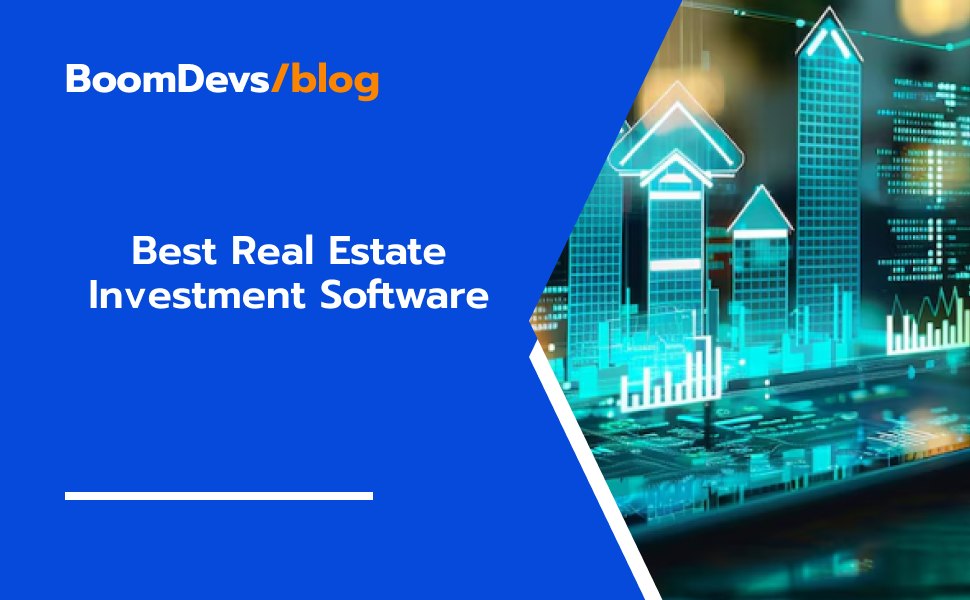In 2024, real estate investors have a powerful tool at their fingertips: advanced software designed to make investing easier and more successful. This software helps investors analyze properties, manage their portfolios, and assess risks, all with the click of a button.
Whether you’re new to real estate investing or have been doing it for years, finding the right software can be the key to achieving better results.
This article will guide you through the best real estate investment software available in 2024, highlighting their features, benefits, and how they can help you succeed in the ever-changing real estate market.
Why Real Estate Investment Software is Essential
Real estate investment software is a powerful tool that makes life easier for investors. It helps by automating complex tasks like analyzing properties and managing portfolios, which can be time-consuming and prone to errors when done manually. This software ensures that everything is done quickly and accurately, saving you both time and effort.
One of the biggest benefits is that it provides data-driven insights. Instead of guessing, investors can make informed decisions based on real market data and trends. This means you can spot profitable opportunities and avoid potential risks, making your investments safer and more profitable.
These software tools are especially helpful for those new to real estate investing. They often come with easy-to-follow guides and resources that make it simple to get started, even if you don’t have much experience. Whether you’re managing a few properties or a large portfolio, real estate investment software is essential for staying competitive and achieving long-term success.
Important Features to Seek in Real Estate Investment Software
When choosing real estate investment software, looking for key features that can make a big difference in your success is important. First, financial analysis tools are essential. These tools allow you to quickly analyze potential properties and make informed decisions based on accurate data. This gives you an advantage over competitors by helping you act quickly on good deals.
Another key feature is access to market data and insights. Knowing where to invest your money is crucial; detailed market information helps you choose the best locations for your investments, maximizing your returns.
Property management integration is also a must-have. This feature streamlines the entire rental process, saving you time and effort by automating many tasks that would otherwise require manual work.
The software should also have a user-friendly interface. It’s important that you can start using the software without needing extensive training or reading through complicated manuals.
Lastly, consider cost-effective pricing. The goal of real estate investing is to make money, so the software you choose mustn’t eat into your profits with high costs. Finding a balance between powerful features and reasonable pricing will help you get the most out of your investment.
Top Real Estate Investment Software In 2024
In 2024, real estate investment is more dynamic and competitive than ever before, and having the right software can make a substantial difference in your success. With advancements in technology, real estate investors can now leverage specialized tools to streamline processes, analyze potential investments, and manage properties more effectively. Here’s a detailed look at some of the best real estate investment software available in 2024, each tailored to meet specific needs within the industry.
BrightInvestor: Best for Market Research
Choosing the right location for your investment is crucial for long-term success, and BrightInvestor is designed to help you make informed decisions. This software compiles data from multiple sources, including the U.S. Census Bureau, The Bureau of Labor Statistics, and various crime and school rating websites.
By providing a comprehensive view of different markets, BrightInvestor allows you to identify high-potential areas with strong appreciation rates and up-and-coming neighborhoods. This is particularly valuable for investors who are looking to invest in properties from afar and need reliable insights into local markets. With its user-friendly interface and detailed data compilation, BrightInvestor is an essential tool for market research in real estate investing.
Backflip: Best for Fix-and-Flip Investments
If your investment strategy involves purchasing properties, renovating them, and then selling them for a profit, Backflip is the perfect tool for you.
Backflip provides a straightforward app that allows you to analyze the profit potential of a property quickly. Simply enter the address, and the app will generate detailed estimates for after-repair value (ARV), return on investment (ROI), and potential profits. This takes the guesswork out of fix-and-flip investments, allowing you to make confident decisions on whether a property is worth your time and resources. Additionally, Backflip offers in-app financing options, making it easier to secure the funds needed for renovations and purchases. Its ease of use and focus on profitability make Backflip a top choice for fix-and-flip investors.
AirDNA: Best for Short-Term Rental Analysis
With the growing popularity of platforms like Airbnb and Vrbo, short-term rentals (STRs) have become a lucrative option for many real estate investors. AirDNA is specifically designed to help investors maximize their earnings in the STR market. The software provides detailed insights into rental pricing, market demand, and competitor analysis, allowing you to set competitive rates and optimize your rental strategy.

AirDNA’s analytics help you identify profitable markets, predict seasonal trends and understand what amenities are driving bookings in specific areas. Whether you’re new to the short-term rental market or an experienced investor, AirDNA’s comprehensive data and user-friendly interface make it an invaluable tool for maximizing profits in this segment.
Furnished Finder: Best for Mid-Term Rentals
If you prefer the stability of mid-term rentals (MTRs) over the frequent turnover associated with short-term rentals, Furnished Finder is an excellent platform to consider. Furnished Finder specializes in connecting property owners with high-quality tenants, such as traveling nurses and corporate professionals, who are looking for furnished rentals for a few months at a time. The platform provides detailed maps that show nearby hospitals, housing demand statistics, and other relevant data to help you understand the potential for renting out your property. With over 100 million page views annually, Furnished Finder ensures your property gets maximum exposure to the right audience. This software is perfect for investors who want to reduce vacancy rates and attract reliable, long-term tenants.
REI Hub: Best for Property Accounting
Managing the financial side of real estate investments can be challenging, especially as your portfolio grows. REI Hub simplifies this process by offering accounting software specifically designed for rental properties. With REI Hub, you can track cash flow, manage expenses, and generate essential financial reports such as profit and loss statements and balance sheets. The software also integrates seamlessly with property management tools like TurboTenant, making it easier to handle your accounting tasks alongside other management duties. REI Hub’s pre-built templates and automated transaction reporting save time and reduce the likelihood of errors, making it an indispensable tool for property investors who want to keep their finances in order and streamline their tax preparation.
TurboTenant: Best for Traditional Property Management
For investors managing long-term rentals, TurboTenant offers a comprehensive solution that simplifies every aspect of property management. TurboTenant provides tools for marketing your properties, screening tenants, creating state-specific leases, and collecting rent, all from an easy-to-use online platform. The software’s integration with REI Hub further enhances its functionality by allowing you to manage your accounting needs within the same system. TurboTenant’s flexible platform means you can use as much or as little of its features as you need, making it a versatile option for both small landlords and large property managers. With its user-friendly interface and robust feature set, TurboTenant is a must-have for real estate investors focused on long-term rental management.
In summary, the best real estate investment software in 2024 offers a range of specialized tools designed to meet the diverse needs of investors. Whether you’re analyzing potential markets, flipping properties, managing short-term or mid-term rentals, or keeping your finances in check, there’s a software solution tailored to help you succeed. By incorporating these tools into your investment strategy, you can stay ahead of the competition, make informed decisions, and ultimately achieve greater profitability in the real estate market
Top Features to Look for in Real Estate Investment Software
When choosing real estate investment software, it’s important to consider the features that will best support your investment strategy. Here are the top features to look for:
- User-Friendly Interface: The software should be intuitive and easy to navigate, even for those with limited technical skills. A clean, organized interface helps users quickly access the tools they need.
- Robust Analytics and Reporting Tools: Advanced analytics are crucial for evaluating potential investments. Look for software that offers comprehensive reporting, including cash flow analysis, ROI calculations, and market trends.
- Integration with Other Platforms: Integrating with other tools, such as accounting software, CRM systems, or MLS databases, can greatly enhance the software’s functionality.
- Mobile Accessibility: In today’s mobile world, having access to your investment data on the go is essential. Ensure the software offers a mobile app or a responsive web design.
- Customer Support and Resources: Quality customer support and access to tutorials, FAQs, and community forums can be a lifesaver, especially for non-technical users.
- Security and Data Protection: Your investment data is sensitive, so the software should offer robust security measures, such as encryption and regular backups.
How to Choose the Right Real Estate Investment Software for You
Choosing the right software depends on your specific needs and investment strategy. Here’s how to make the right choice:
- Assess Your Needs: Determine what you need from the software. Are you looking for detailed analytics, ease of use, or integration with other tools? Identifying your priorities will help narrow down your options.
- Set a Budget: Real estate software can vary greatly in price. Decide how much you’re willing to spend and consider the value the software provides.
- Consider Ease of Use: If you’re not tech-savvy, opt for software with a user-friendly interface and plenty of support resources.
- Evaluate Customer Reviews and Ratings: Research what other users are saying about the software. Pay attention to reviews that mention customer support, ease of use, and reliability.
- Take Advantage of Trial Versions: Many software providers offer free trials or demos. Use these to get a feel for the software before committing.
Real-Life Examples of Success with Real Estate Investment Software
Many investors have found success by leveraging real estate investment software. Here are a few examples:
- Case Study 1: A small-scale investor used Software B to manage a growing portfolio. By utilizing the software’s analytics and reporting tools, they were able to identify underperforming properties and make informed decisions to improve their ROI.
- Case Study 2: A large property management firm integrated Software A into their operations. The software’s robust analytics and integration capabilities allowed them to streamline their processes, resulting in significant time savings and improved accuracy.
- Case Study 3: A real estate agent used Software C’s virtual tour features to showcase properties to clients remotely, leading to faster sales and higher client satisfaction.
The Future of Real Estate Investment Software
The future of real estate investment software is full of exciting possibilities, with new technologies emerging to make the process even more efficient, secure, and user-friendly. Let’s break down the key trends that are expected to shape the industry:
1. AI and Machine Learning
Artificial Intelligence (AI) and Machine Learning (ML) are becoming essential in real estate software. These technologies can analyze large amounts of data quickly and accurately, helping investors make better decisions. For example, AI can predict which properties will increase in value or identify the best time to buy or sell. It can also automate routine tasks, such as responding to customer inquiries, freeing up more time for investors to focus on important decisions. With AI and ML, the software can offer personalized recommendations based on the user’s preferences and past actions, making the entire investment process smoother and more tailored to individual needs.
2. Blockchain Technology
Blockchain technology is another trend that could transform real estate investment software. Blockchain is a secure, decentralized digital ledger that records transactions across multiple computers so that the record cannot be altered retroactively. This technology can make real estate transactions more secure, transparent, and efficient. For example, blockchain could be used to verify ownership and transfer property titles without the need for intermediaries, reducing costs and speeding up the process. Some real estate software platforms are already exploring how to integrate blockchain to offer more secure and streamlined transactions.
3. Increased Mobile
Functionality As more investors prefer to manage their real estate portfolios on the go, mobile functionality in real estate software is improving. This means that software will continue to become more robust on mobile devices, allowing users to access all the features they need from their smartphones or tablets. Whether it’s analyzing potential investments, managing properties, or communicating with tenants, everything can be done with just a few taps on a mobile device. This convenience is especially important for busy investors who need to stay connected and make decisions no matter where they are.
4. Enhanced Security
Measures With the growing importance of data privacy, the future of real estate investment software will likely include advanced security features. This could mean better encryption to protect sensitive information, stronger authentication methods to ensure that only authorized users can access certain data, and overall improvements in how data is stored and managed. As cyber threats become more sophisticated, real estate software developers will continue to enhance security measures to protect investors’ data and maintain trust in their platforms.
In summary, the future of real estate investment software is bright, with AI, blockchain, mobile functionality, and enhanced security playing key roles in shaping the industry. These advancements will make investing in real estate easier, more secure, and more efficient, benefiting both seasoned investors and those just starting out.
Final Thought
In 2024, using the right real estate investment software is crucial for anyone looking to succeed in the real estate market. This software can help you analyze properties, manage your investments, and make smart decisions that increase your profits. Whether you’re just starting or have been investing for years, there’s a software solution that can meet your needs.
By choosing the right software, you can make your work easier, reduce risks, and ensure that your investments are successful. As technology continues to improve, keeping up with the best tools will help you stay ahead in the competitive real estate market.








